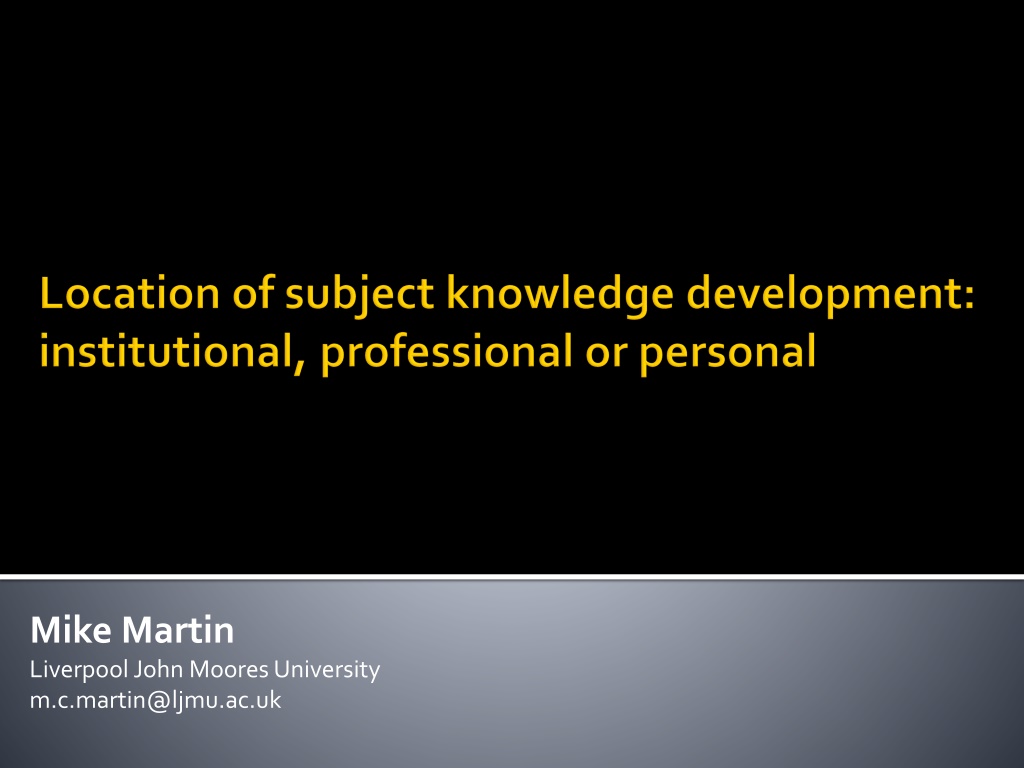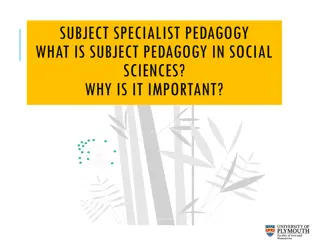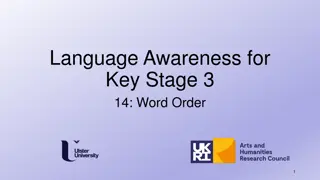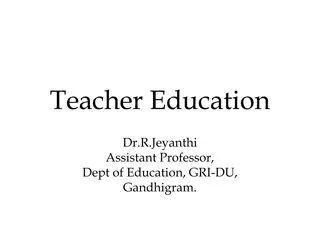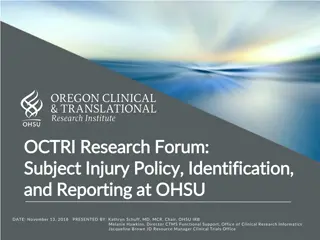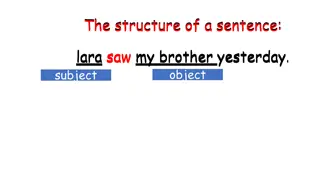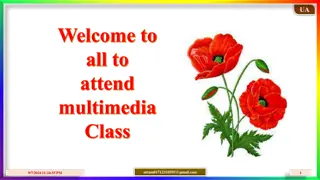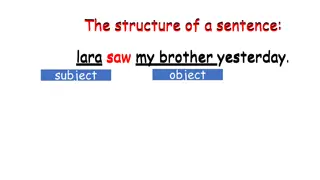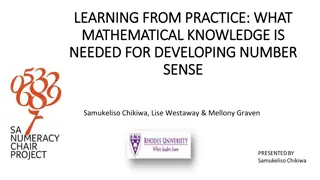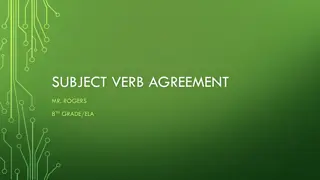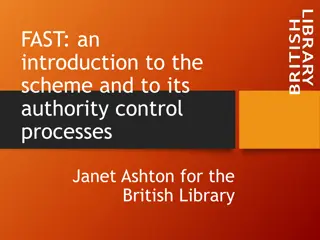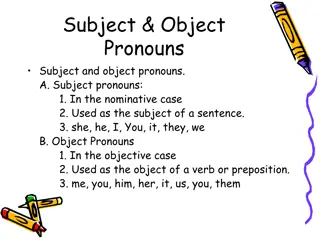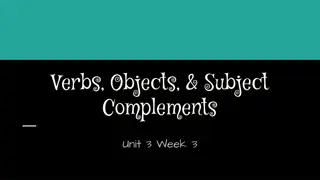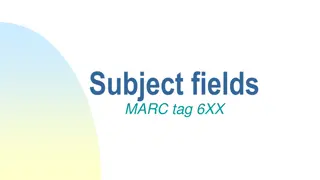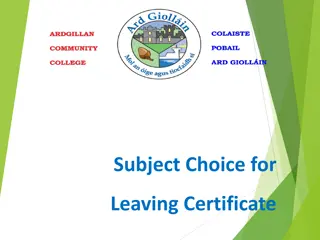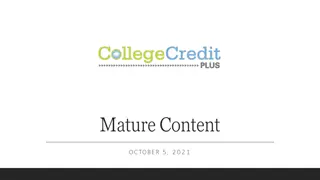Understanding Subject Knowledge Development in Education
Exploring the complexities of subject knowledge development in education, this study delves into areas such as students' existing knowledge, competencies, and the role of institutions in shaping knowledge acquisition. The focus lies on personalizing knowledge to individual needs rather than a fixed body of knowledge. Various perspectives, from institutional providers to beginning teachers, are analyzed to understand the dynamics of knowledge application and development in educational settings.
Download Presentation

Please find below an Image/Link to download the presentation.
The content on the website is provided AS IS for your information and personal use only. It may not be sold, licensed, or shared on other websites without obtaining consent from the author. Download presentation by click this link. If you encounter any issues during the download, it is possible that the publisher has removed the file from their server.
E N D
Presentation Transcript
Mike Martin Liverpool John MooresUniversity m.c.martin@ljmu.ac.uk
Uncomfortable with subject knowledge competencies what students can t do Critique of competence model (Martin 2008) Exploration of eportfoliosfor previous 5 years Presentations at subject conferences Now focus of doctoral work
Knowing in action Schn(1983) Pedagogical content knowledge and pedagogical reasoning Shulman(1986) Construction of knowledge through practical activities Greenoet al (1996) Situated and social Putnam & Borko (2000) Knowledge in practice -Ellis (2007)
A fixed body of knowledge? Knowledge developed as and when necessary so why audit and check? Personal body of knowledge one size fits all does not work
Looking at three perspectives Institutional ITE providers, TDA Professional schools, subject mentors Personal student / NQT / beginning teacher
Acceptance of a place on the course subject to a particular level of subject knowledge Auditing, target setting, tracking all managed by the provider Lists of competences generated often subject knowledge per-se, not application Internal and external monitoring
Students come to the professional context already with subject knowledge Focus on helping to teach what is already offered to pupils What happens in the classroom is the focus Knowledge required is driven by curriculum of the moment
Development of subject knowledge in the individual student / NQT / beginning teacher Knowledge acquired by an individual according to their needs
Decided to canvas opinion Questionnaire developed to get a snapshot of students opinions
Confidence at the beginning of the course 14 12 10 8 6 Number of students 4 2 0 1 2 3 4 5 6 7 8 9 10 11 12 13 14 15 16 17 18 19 20 Not at all confident Very confident
Importance of SK development in schools 14 12 10 8 Number of students 6 4 2 0 1 2 3 4 5 6 7 8 9 10 11 12 13 14 15 16 17 18 19 20 Not at all important Very important
Perceived importance of SK development by mentors 14 12 10 8 Number of students 6 4 2 0 1 2 3 4 5 6 7 8 9 10 11 12 13 14 15 16 17 18 19 20 Not at all important Very important
Individual Institution Professional context
Owned by institutions knowledge static, content focused and uniform Owned by professionals curriculum driven, delivery focused and diverse Owned by the individual personalised, unique and diverse, non-uniform
In institutions learning with peers In schools learning with mentors, technicians Self-taught OK for knowledge acquisition
A question of competence What can be assessed? Students work annotated Pupils work - annotated
Used to capture a variety of media Usually personal and owned by the student Storytelling Helen Barrett www. electronicportfolios.org Annotation
Who should drive subject knowledge development in ITE? How can differences between institutional and professional expectations be resolved? What interventions / actions could improve subject knowledge development in schools? What balance should there be between generic / transferable skills and single subject knowledge per se? How much knowledge is needed to teach your specialist subject?
Mike Martin Liverpool John Moores University m.c.martin@ljmu.ac.uk www.staff.ljmu.ac.uk/edcmmart
